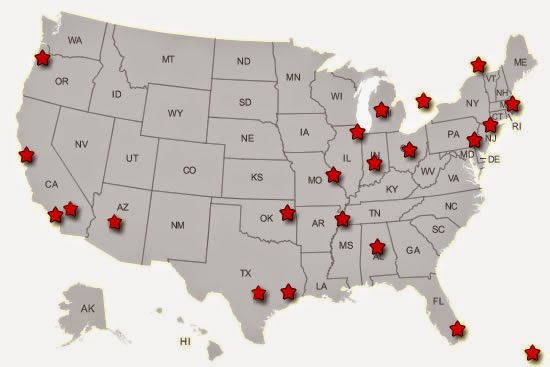How to Choose the Right Optometry School For You
11:08 PMYou've done it! You've made the decision to devote the rest of your life to eye balls and their care and keeping. I know that may seem like an exaggeration, but when you become an optometrist, you really do think about eyes all day long. When you aren't at work seeing patients, you are talking to your optometrist friends about eyes, talking to your family about their eye problems, talking to your outside of optometry friends about their eyes, talking to total strangers that ask what you do for a living about their eyes. Just as a word of advice, when you are on vacation and don't want to talk about eyes for a few days, pretend that you have a different career. White lies can't hurt in this case. There is nothing like hiking Yosemite and having to talk to a stranger about their uncle's cousin's cataract surgery complication all the way up the mountain.
 |
| States with current optometry schools -- more coming soon! via |
- Consider the Finances
- Consider the School's Focus
- Pay Attention to the Student Body
- Think About Your Education and What Challenges You Will Face in Getting a License
- Ask yourself: Can I Be Happy Here?
 |
| My Graduating Class |














_SAND.jpg)



4 comments
I really liked the section on paying attention to the student body. I remember a certain someone in our class that liked to make himself cry when the tours came through during our lunch break.
ReplyDeleteI failed to account for the number of optometrists who thrive on devious shenanigans. The more of those that you see on your tour, the better in my experience haha
ReplyDeleteGreat post! Been reading a lot about optometry programs. Thanks for the info here!
ReplyDeleteThere are many questions about career like is optometry a good career choice for us? So the answer is simple that it is important for students who want to set their career in optometry.
ReplyDelete